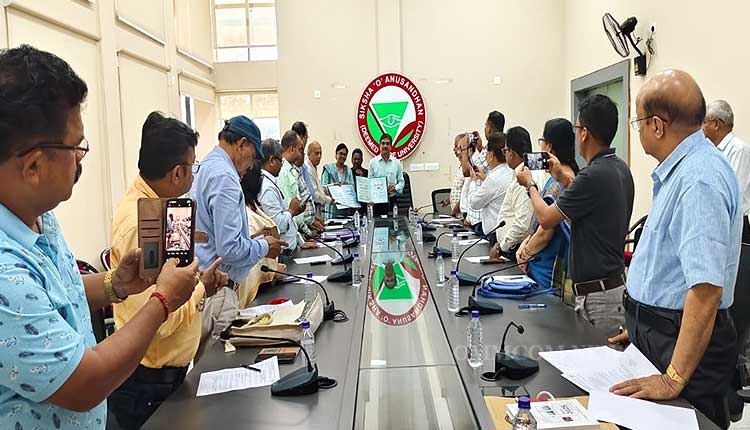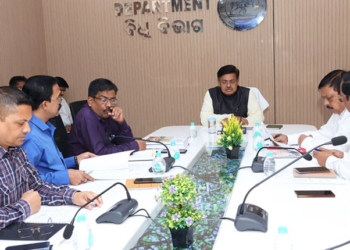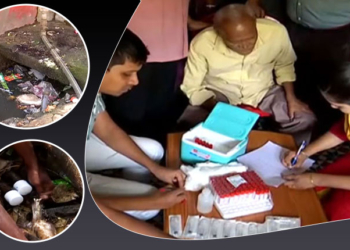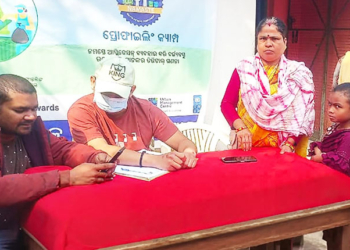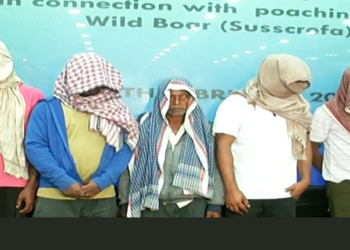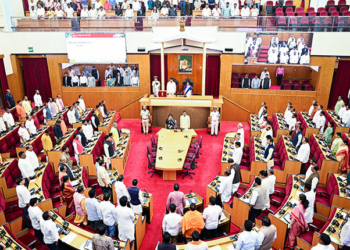Bhubaneswar: Climate change has emerged as the most pressing challenge facing humanity in the aftermath of the COVID-19 pandemic and public awareness is key to tackling the crisis, noted Prof. Uma Charan Mohanty, Distinguished Professor at Siksha ‘O’ Anusandhan (SOA) Deemed to be University.
Speaking at the executive committee meeting of the Science for Common People Society (SCOPES) held at SOA on Thursday, Prof. Mohanty—who also serves as the President of SCOPES—said that climate change would adversely impact food security, public health, and water resources.
SOA Vice-Chancellor Prof. Pradipta Kumar Nanda, who released the official logo of SCOPES during the event, said the university has launched several initiatives to simplify science for the common man, enabling lifestyle improvements geared toward sustainable development.
“SOA is focusing on a multi-disciplinary approach to bridge the gap between science and society,” Prof. Nanda said. He also highlighted the university’s efforts in sending agriculture students to rural Odisha to assist farmers with modern farming techniques.
Prof. Mohanty, associated with the university’s Centre for Climate Smart Agriculture (CCSA), underscored the importance of clean and green energy and called for urgent action in mitigating the environmental impacts of fossil fuel dependence.
He also pointed out that “Science for Society and Culture” was among the three themes under the S-20 initiative launched during India’s G-20 presidency. “There is a need to strengthen agricultural productivity, especially as climate change is likely to hit food security the hardest,” he said.
Citing recent climate patterns in Odisha, he said the rise in lightning-related thunderstorms during the monsoon months of July and August is a direct consequence of climate change, leading to increased casualties.
Dr. Nihar Ranjan Das, Secretary of SCOPES, shared the origin of the organization, which was conceptualized by SOA’s Founder President, Prof. (Dr.) Manojranjan Nayak. His “Lab to Land” philosophy aims to take science beyond laboratories and make it accessible to the grassroots level.
“Based on his experience during the COVID-19 pandemic, Prof. Nayak felt the urgent need to democratize science, making it usable by common people. That led to the formation of SCOPES and the broader movement of ‘Science for Common People,’” Dr. Das said.
SCOPES has identified eight key focus areas:
- Weather, climate, and climate change
- Natural hazards and disaster management
- Smart agriculture and food security
- Energy
- Water conservation and management
- Environment, pollution, and waste management
- Smart technology for sustainable development
- Public health and smart society
These focus areas aim at comprehensive development and curbing the reverse migration of farmers from Odisha to western states.
As part of its outreach, SCOPES plans to conduct an Environment and Climate Olympiad for schoolchildren and launch a state-wide Jana Bigyan Jatra to raise awareness on issues like heatwaves, cyclones, lightning, dengue, and malaria.
Present at the event were Dr. Manorama Mohanty, Director of the India Meteorological Department, Bhubaneswar; Prof. Manas Kumar Mallick, Director of the Institute of Technical Education and Research (ITER); and Mr. Pramod Kumar Panda, Chief Administrative Officer of SOA.




